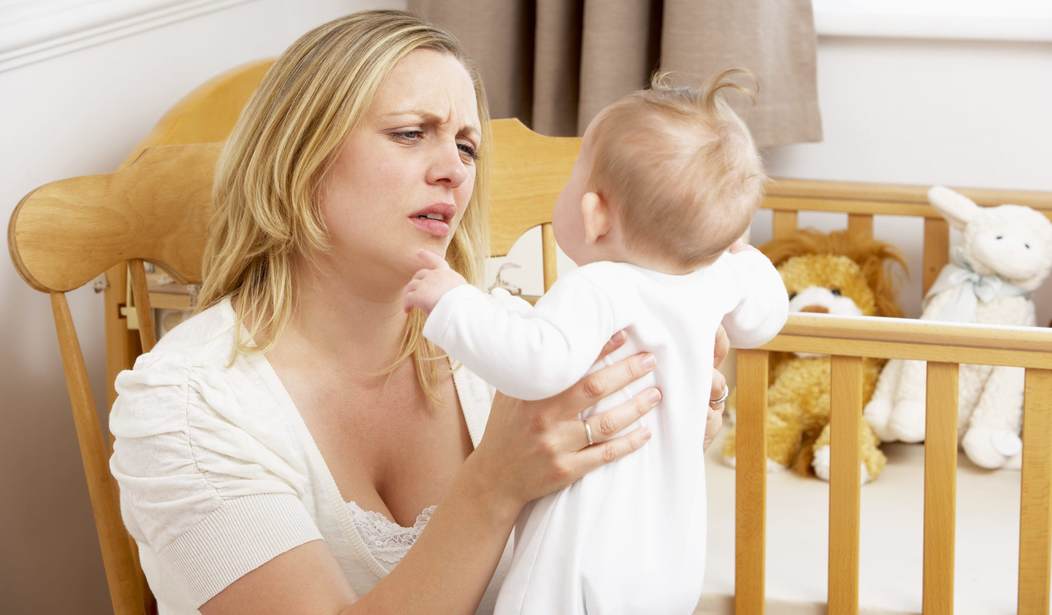Motherhood surprises women these days. Not the fact of motherhood. Many women meticulously plan their pregnancies. Certainly, women of advanced education plan childbearing, occasionally to a fault.
The fact of motherhood does not shock, but the day-to-day of motherhood and the intensity of motherhood do. As a culture we condition women to believe that having a baby is just a biological function and they will go back to their previous lives, albeit with babes in tow, after a few weeks of recovery.
[Insert gentle, hysterical, or bitter laughter from experienced moms here.]
Trained to be doctors and lawyers and such, today’s young educated women did not typically care for babies when they were growing up. College bound, they had better things to do than babysit babies and their mothers had visions of them doing “more” and wouldn’t dream of expecting their child to care for other children. Even now, many of the mothers I know—I’m in the highly educated and metropolitan set—think that expecting older siblings to care for younger ones is some combination of dangerous and unfair. And watching a young girl play with babies is almost pitiable.
In this domestic discouragement, we lay the foundation for the common motherhood shock. Unaware of even what should be the known knowns of motherhood, newly expecting moms tend to read books about pregnancy and childbirth. It is presently happening to their bodies and book learning comes easily to the modern woman. It’s how we made all those good grades and have out-enrolled men in higher education, after all.
Publishers have helpfully provided a large library of pregnancy and childbirth books. With so much information—much of which is contradictory, by the way—it is all too easy to forget that pregnancy and birth only last nine months plus labor and delivery. (Actually, it is 40 weeks or 10 lunar cycles, although it is really only 38 because the 40-week timeline begins at the start of your last period when you weren’t actually pregnant—yes, yes I know. As I was saying about overwhelming information…)
There isn’t anything wrong with reading up on pregnancy or preparing for childbirth, unless it means you forget to prepare for the actual baby. The dilemma reminds me of weddings and marriage. The bridesmaid requirements, the inscriptions on the napkins, or the Bible verse read by your college roommate—such popular and visible details can swamp the fact that, after you wake up the next morning, you have a marriage that you are supposed to keep. If you focused too much on the wedding show, the whole wife thing might have caught you flat-footed. (If that sounds like the voice of experience, that’s because it is.)
Fifteen years and four children after my own wedding, I can report with confidence that staying married is much harder than having a wedding, and raising a child is much harder than giving birth. Incidentally, according to the risk data, the best thing you can do to raise happy and productive humans is to remain married, so there is a lot riding on all of this.
But modern women are missing a bunch of practical knowledge that is really quite useful, essential even, for both marriage and motherhood. Some marital skills come up in law school or medical school—think conflict resolution or bedside manner—but parenting skills come from experience with babies and children. Competence in those skills boosts parental confidence and reduces the chance of turning into one of the command-and-control types of parents: helicopter, tiger, or whatever we might call the parents who inadvertently stifle their children’s development. (These parenting styles probably do not do much for marriage, either.)
I noticed this all when I was a new mother. First, I figured out my marriage mistake and learned to pay much more attention to the long parenting journey than to the short gestation period. Second, I come from a large extended family and have a brother significantly younger than me. Except for childbirth and breastfeeding, I wasn’t a first-timer for practical skills when my son was born. Most of my girlfriends, however, did their first diaper change with their first child.
They found motherhood more stressful, more overwhelming. The contradictory information alone stressed them out as small details became big problems. To peanut butter or not before one year? (At the time is was “never!” Now it is “should.”) While they focused on that popular flip-flopping debate, they learned after feeding their little one honey (i.e. unprocessed “natural” and therefore obviously good sugar) that baby human digestive tracts do not kill botulism spores that are common in honey.
Add to that the Mommy Wars that are one giant peer pressure “vote for my way” campaign, and moms silo-ed up. Stressed and isolated, they used total control as a defense—against anything and everything, from hardship for their child to accusations that they are not woman enough to do it all. (This is also why this post focuses on mothers. That total control to prove their womanly skills often includes banishing dad to occasional and assumed incompetent babysitter status.) This is modern motherhood. Exhausted. Lonely. Maxed out. There’s even a book called Maxed Out: American Moms on the Brink. (Link to a review rather than Amazon because it is another typical example of the “problems need government solution” genre.)
Back in my new mother days, I was the talkative friend who was willing to go on record with actual advice. (I have little patience for the “just do what works for your family” advice avoidance technique.) I wrote helpful emails on various baby topics. As waves of friends had their first child, I would update the advice and recirculate it. I intended to compile it and even have a working draft of a book called Motherhood for Professionals. Now, my baby brother is about to make me an aunt again and I seem to be in another run of friends about to have their first baby. I began another update to share with them and started that book compilation, but realized I could be quicker and more useful with a weekly post on practical parenting.
So I will start publishing weekly posts of practical advice. The first bit of advice is this:
Motherhood might not be rocket science, but it is full of practical skills that require, well, practice. Take time to learn domestic skills and get some hands-on experience with babies and toddlers. Find a friend who has at least one under one year and offer to hang with her for a long weekend. She will enjoy the company and the extra hands. You will get some hands on training. And both of you will get some memories to enjoy for years to come. (Right, Anne?)
That time will serve you better than hours spent reading parenting theory books, much less tomes on pregnancy nutrition. Besides, give those books a few years, the “science” and the best practices advice will change. I even hear expectant moms are supposed to eat peanut butter these days.








Join the conversation as a VIP Member